A Successful Deployment
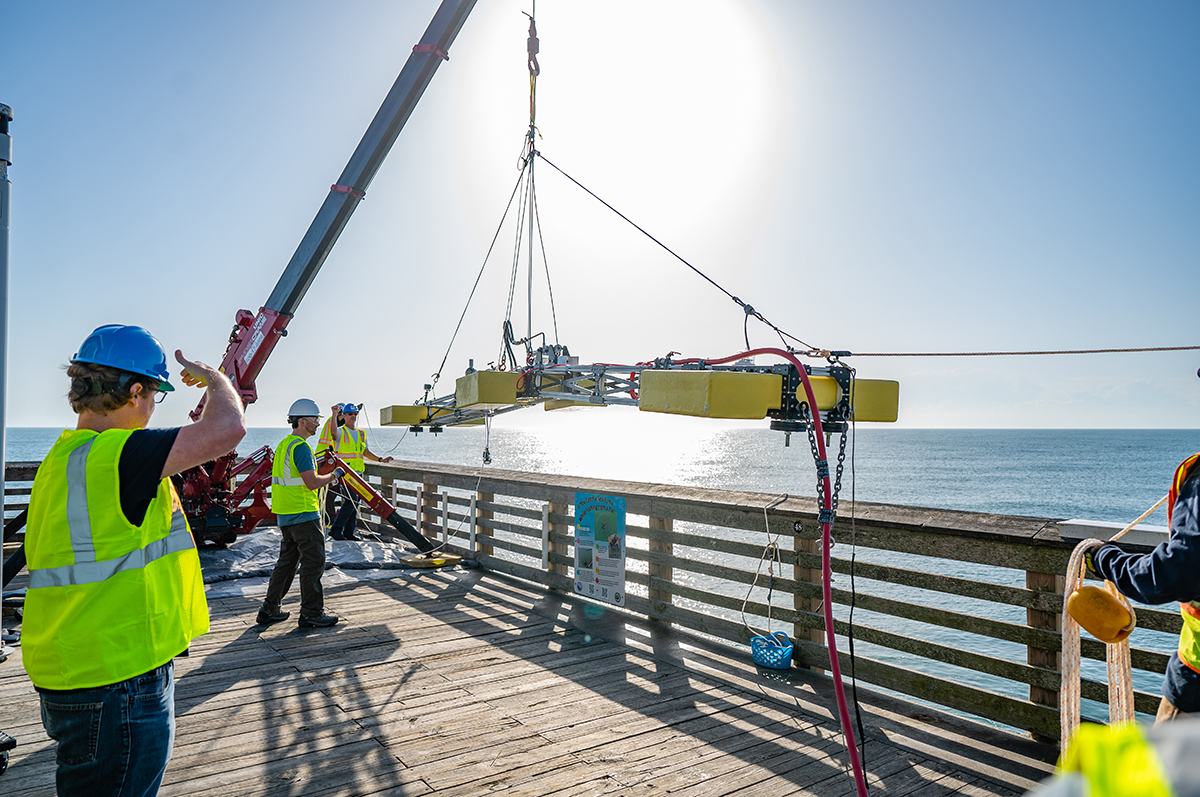
Brandon Poythress of Mark Zero Prototypes watches as his team’s device is lifted over the pier railing and lowered to the sea surface.
On April 3, 2022, all four devices entered in the U.S. Department of Energy’s (DOE’s) Waves to Water Prize DRINK Finale were successfully and safely deployed at Jennette’s Pier on the Outer Banks. Within hours of being in the ocean, each device produced desalinated water.
The four systems deployed at Jennette’s Pier are some of the first wave-powered desalination devices to be deployed. Marine renewable energy is in its infancy compared to other forms of renewable energy, like wind and solar. In early stages of research and development, there is still much to be learned, especially when it comes to deploying renewable energy technologies in the ocean.
Plot Twist
As any resident of the Outer Banks is likely to know, the weather conditions in coastal North Carolina are constantly changing and are often unpredictable. The night of April 3rd and into the early morning of April 4th was no exception. The wind speed at Jennette’s Pier exceeded 30 knots resulting in a chaotic sea state. As a result, all four devices broke free from their anchor sites during the night, but all have been located. Two of the devices were recovered from land, and two were recovered from the water as soon as conditions were safe for a retrieval team to do so.
Extreme Environments
Working in extreme environments can be a very rewarding process, but working on and in the water, especially the ocean, does not go without challenge. The unpredictability of nature is always a factor, and safety is always the highest priority for all agencies involved in the Waves to Water Prize.
The Department of Energy’s Waves to Water Prize is always aware of, and prepared for, the risks associated with deploying devices in the ocean. In fact, the system constraints under variable weather conditions are often a reality in early-stage research and development, which is why DOE’s Water Power Technologies Office (WPTO) prioritizes the funding of this critical stage research.
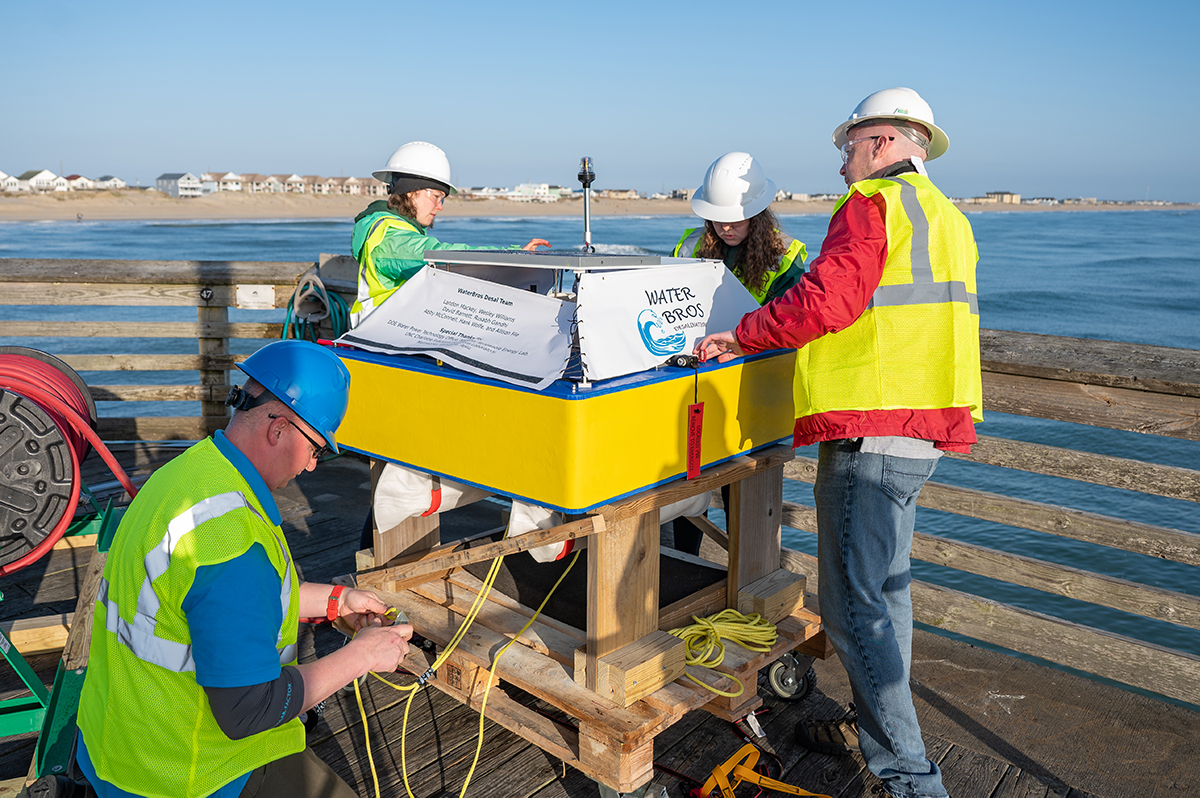
Team WATER BROS checks their desalination device before their deployment period begins.
What’s Next?
The Coastal Studies Institute, Jennette’s Pier, and the Waves to Water Prize Administration Team are working together with teams to determine the next steps for the competition. Regardless, the Waves to Water Prize Administration Team still plans to assess device performance and award competitors respectively.
While the devices were not deployed for as long as originally intended, the results from testing the devices while they were in the ocean environment will help WPTO, the National Renewable Energy Lab (NREL), and the Coastal Studies Institute identify future research opportunities for marine renewable energy.
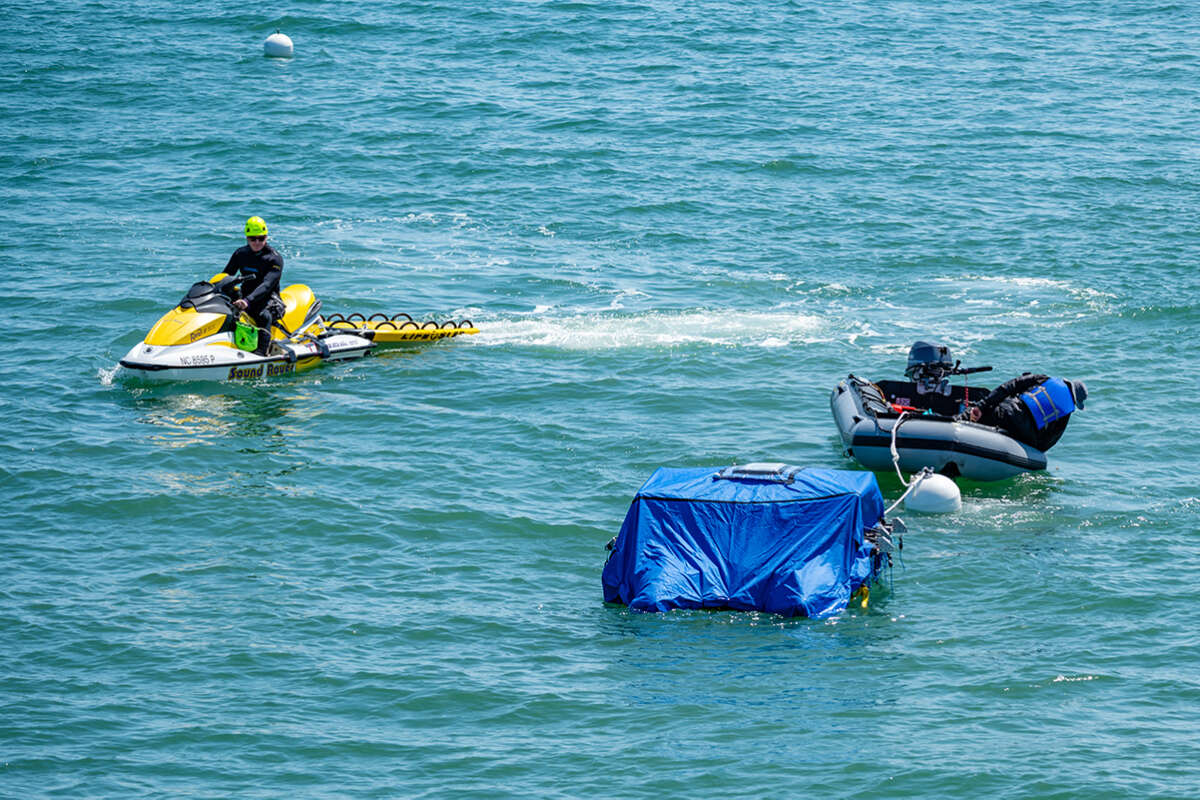
Members of the CSI crew work to secure Project 816’s device to the anchor site. Underneath the blue tarp is an intricate system that converts wave energy into electrical energy.
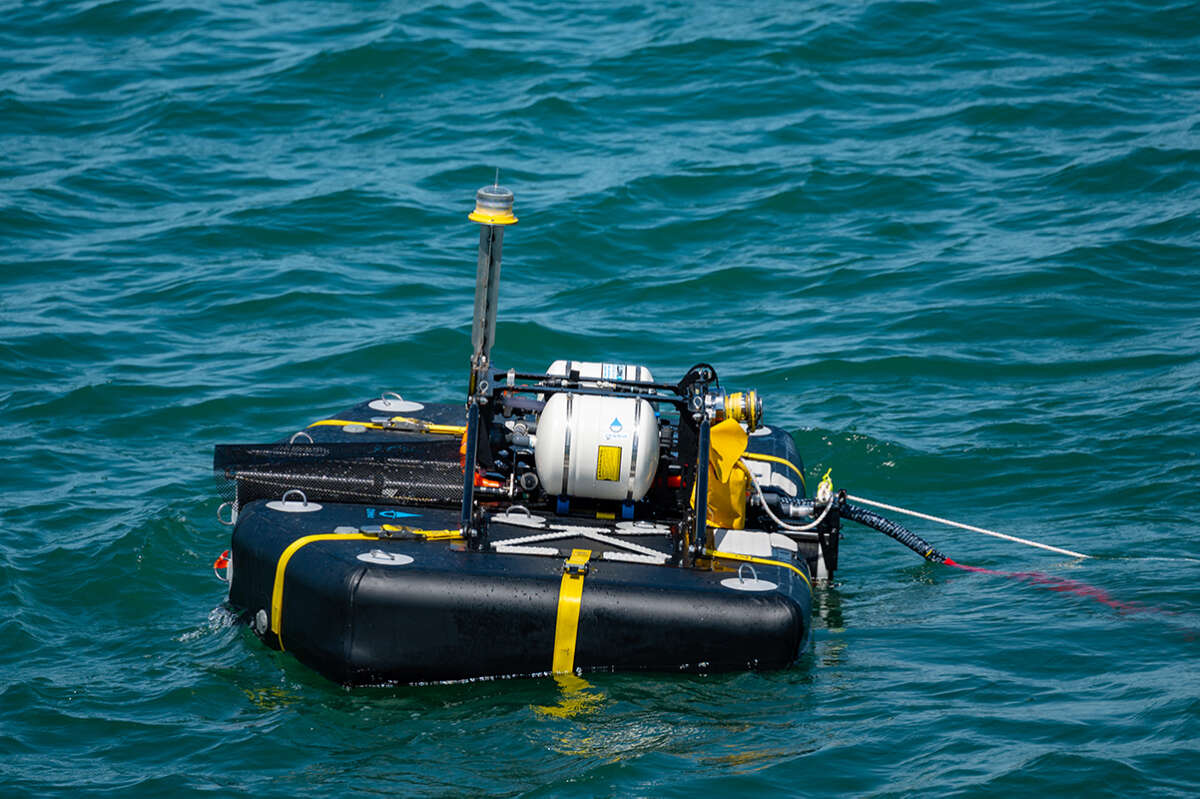
The powerhouse of the Onkea Technologies Snowflake is centered between two large inflatable wings.
Learn more about the Waves to Water Prize and the teams’ work leading up to the deployment.

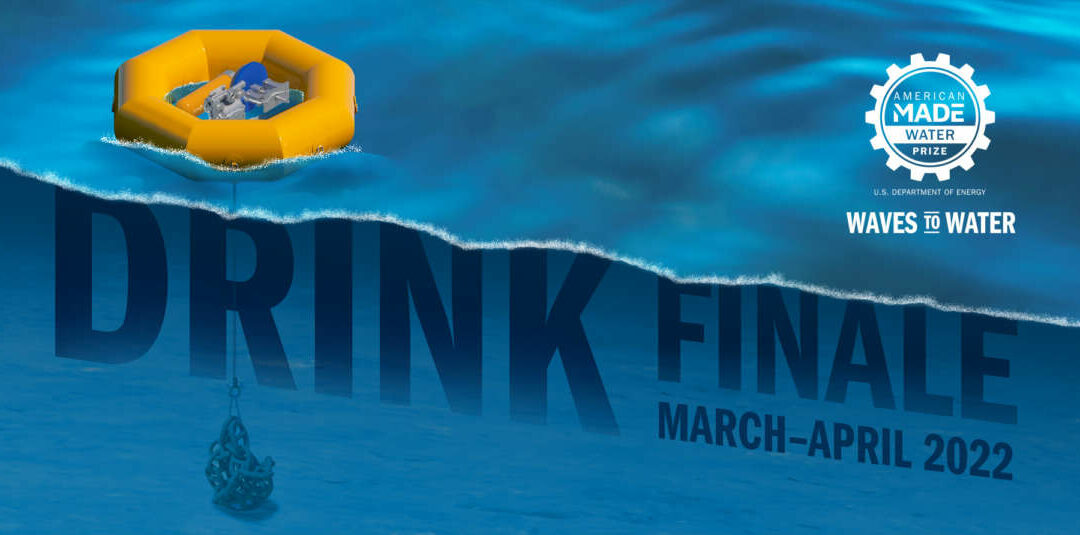

 Based at the Coastal Studies Institute (CSI), the North Carolina Renewable Ocean Energy Program (NCROEP) advances inter-disciplinary marine energy solutions across UNC System partner colleges of engineering at NC State University, UNC Charlotte, and NC A&T University. Click on the links below for more information.
Based at the Coastal Studies Institute (CSI), the North Carolina Renewable Ocean Energy Program (NCROEP) advances inter-disciplinary marine energy solutions across UNC System partner colleges of engineering at NC State University, UNC Charlotte, and NC A&T University. Click on the links below for more information. ECU's Integrated Coastal Programs (ECU ICP) is a leader in coastal and marine research, education, and engagement. ECU ICP includes the Coastal Studies Institute, ECU's Department of Coastal Studies, and ECU Diving and Water Safety.
ECU's Integrated Coastal Programs (ECU ICP) is a leader in coastal and marine research, education, and engagement. ECU ICP includes the Coastal Studies Institute, ECU's Department of Coastal Studies, and ECU Diving and Water Safety. The ECU Outer Banks campus is home to the Coastal Studies Institute.
The ECU Outer Banks campus is home to the Coastal Studies Institute.

